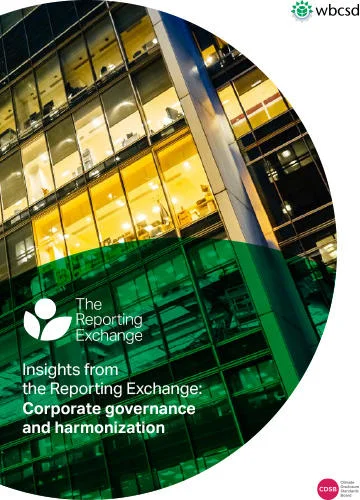Insights from the Reporting Exchange: Corporate governance and harmonization
Published: March 25, 2018

Compared to the development of financial reporting, the evolution of non-financial reporting has been rapid and fragmented. There are many regulations, reporting frameworks, guidance and tools which influence the corporate reporting process on environmental, social and governance issues (ESG). The resulting reporting landscape has been described in recent reports by the Business and Sustainable Development Commission1 and ACCA2, as complex, overwhelming and there have been calls for more harmonization and alignment.
What are the objectives of the Reporting Exchange?
The primary objective of the Reporting Exchange is to provide much-needed clarity to corporate report writers on what, where and how to report on sustainability issues while supporting clearer, more concise and better-informed reporting of sustainability information. The Reporting Exchange summarizes and connects ESG reporting requirements and resources from across 60 countries and 70 sectors. Better quality reporting practices can support better internal and external decision-making on sustainability-related risks and opportunities which, in turn, can influence capital allocations by investors – making more sustainable businesses, more successful.
The Reporting Exchange also provides the evidence base to help drive action towards a more harmonized, aligned and effective corporate reporting environment. The platform maps sustainability reporting provisions across the world’s largest economies, showing how and where they link and align.
The Reporting Exchange has also been designed as an open and collaborative space for the many people and organizations active in corporate reporting. It allows the latest developments, insights and good practices to be easily shared across geographic borders and sectoral boundaries which may help accelerate harmonization and alignment of corporate ESG at a global scale.
This paper is part of a series that expands on the research and data insights that led to the Reporting Exchange.
While collating the provisions that are part of the Reporting Exchange, we looked for patterns and trends across countries, sectors and provisions. One of the most evident similarities we came across was among corporate governance codes. This paper focuses on these codes, measures their similarity and assesses the influence of the G20/OECD Principles and the Cadbury Report to better understand the processes at play in this example of corporate governance harmony.